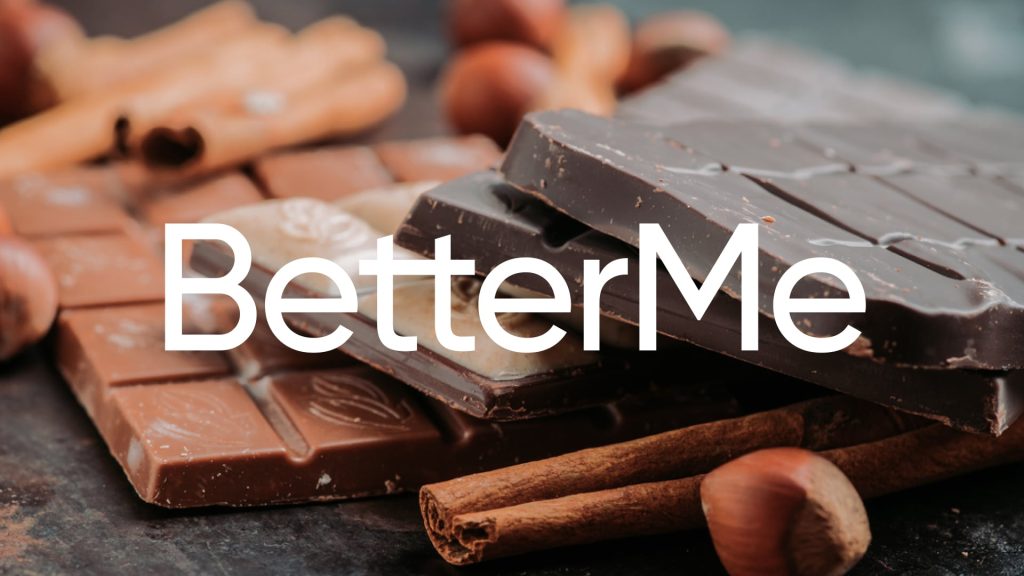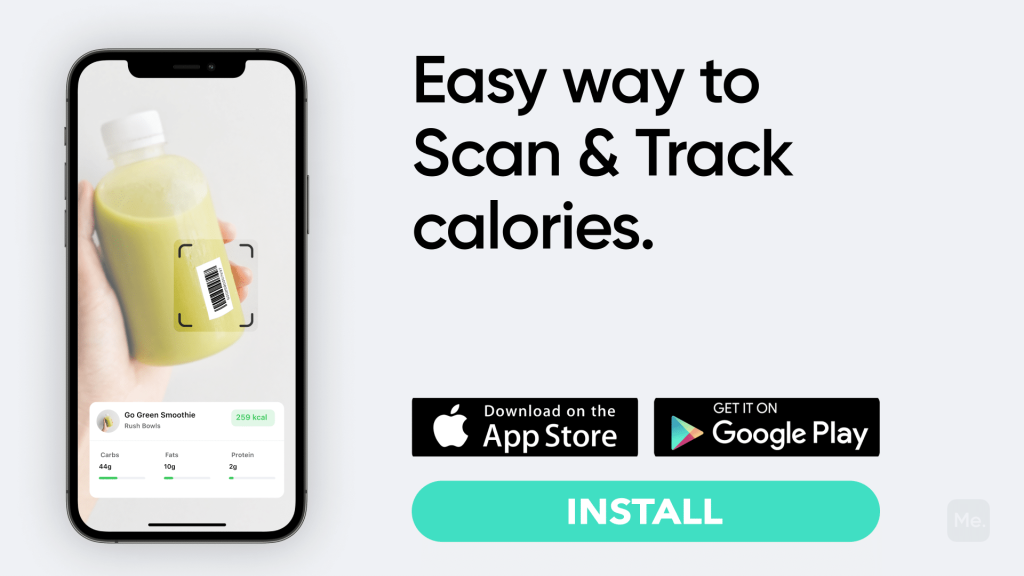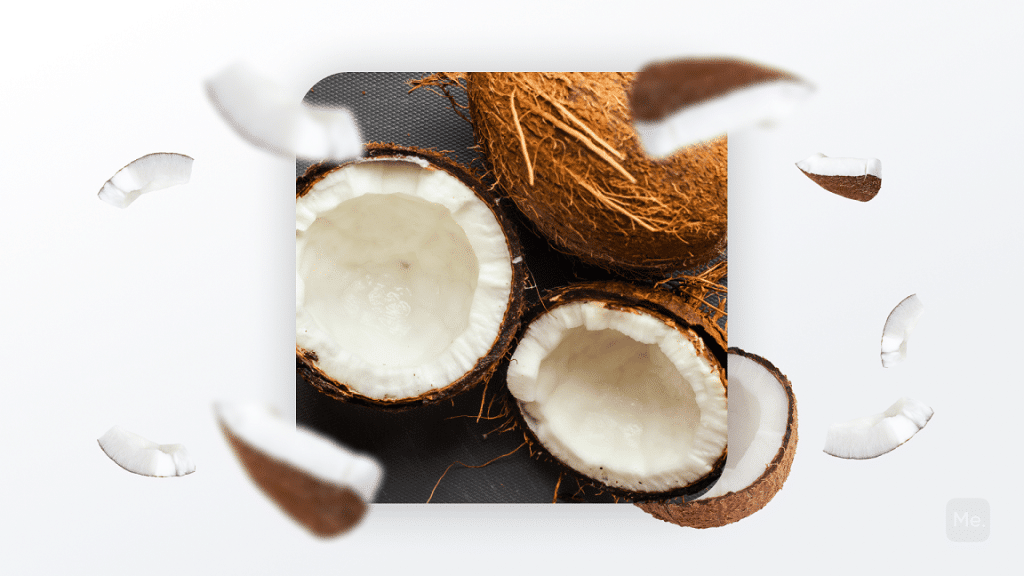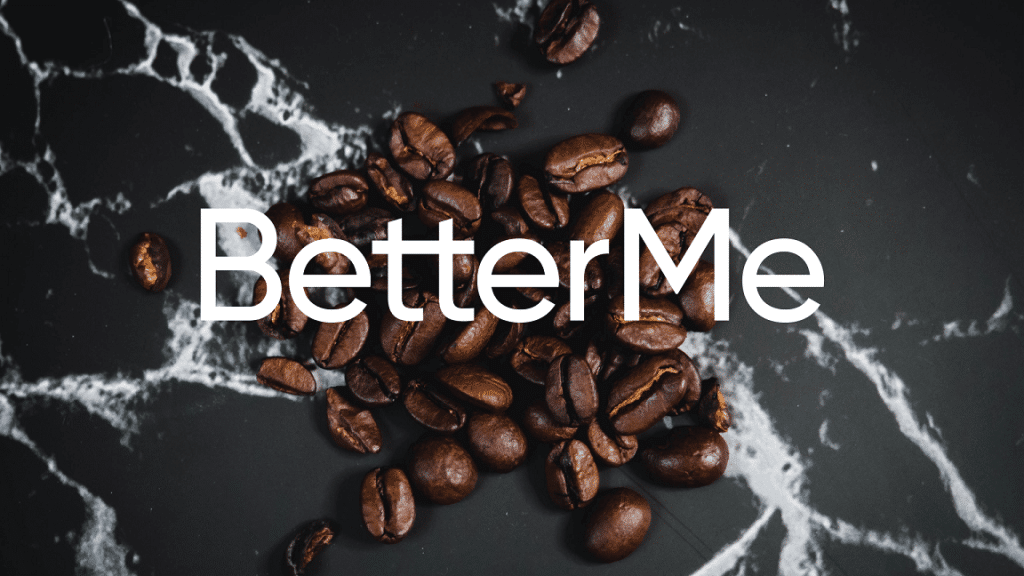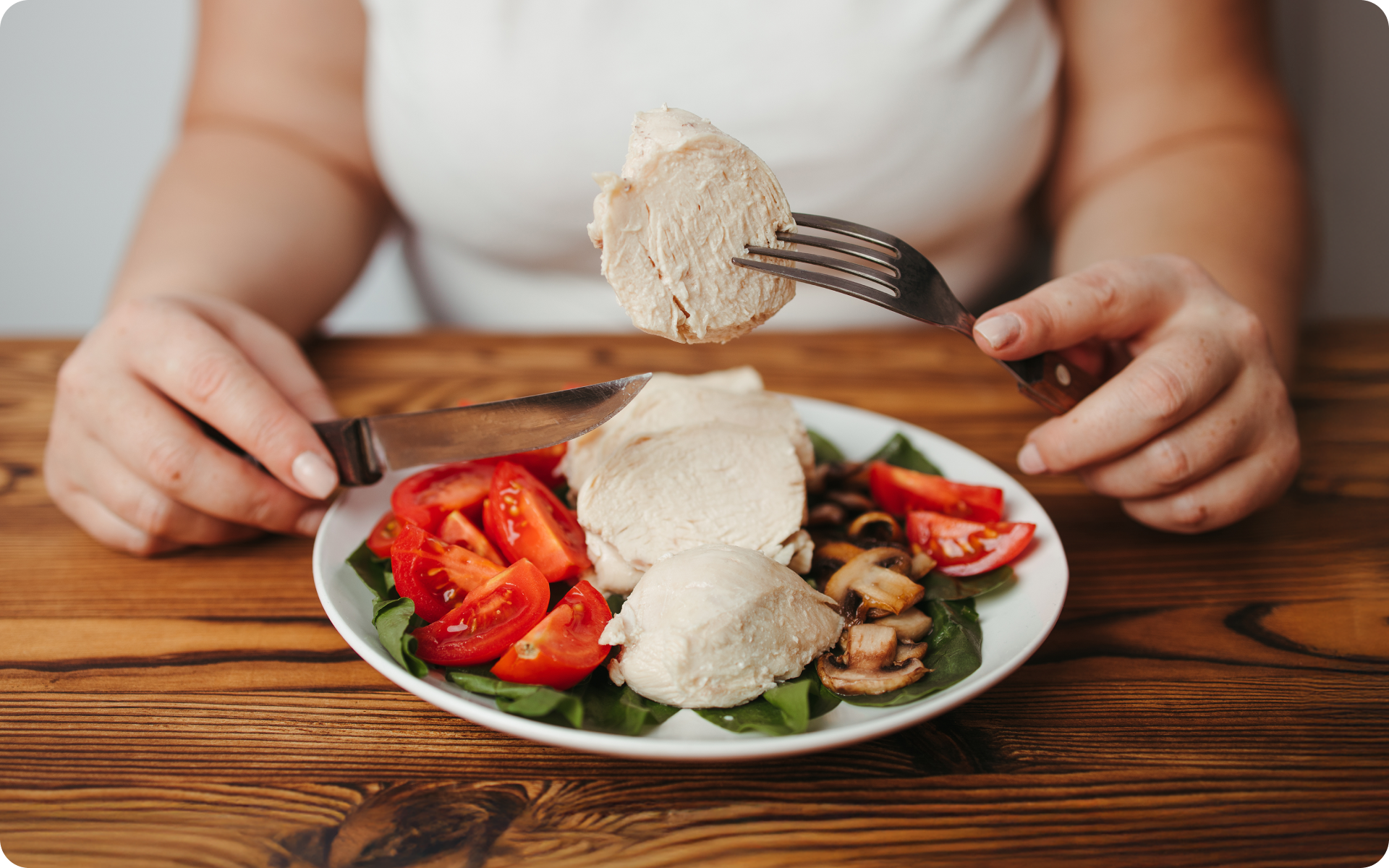In the age of processed foods, you’ll find sugar in the unlikeliest of places. Even savory items like salad dressing and ketchup can have surprising amounts of sugar. It’s no wonder that the average person consumes about 60 pounds of sugar every year (9)! Added sugars contribute to a host of health problems, including weight gain, cavities, and heart disease. And while you may be tempted to think that cutting back on sugar will mean giving up all your favorite foods, that doesn’t have to be the case. The No Sugar Diet is a balanced approach to eating that includes all the food groups while limiting added sugars. It’s not a deprivation diet, but rather a way of eating that focuses on nutrient-rich foods and limits empty calories. Here’s what you need to know about the No Sugar Diet including its benefits, foods to eat and avoid, and how to read food labels.
Get your personalized
meal plan!
What Are Added Sugars?
All food, including fresh fruits and vegetables, contains sugars. It’s not a coincidence—your body actually needs sugar to function properly. Some functions sugar performs include (25):
- Fueling your brain: Sugar is the preferred fuel for your brain. When you don’t eat enough sugar, you may feel tired, irritable, or even dizzy.
- Helping your body absorb nutrients: Sugar helps your body absorb vitamins and minerals from the food you eat.
- Maintaining your blood sugar levels: Your body needs sugar to keep your blood sugar levels stable. If you don’t eat enough sugar, your blood sugar levels may drop too low, causing you to feel shaky or lightheaded.
Natural sugars are simple carbohydrates that occur naturally in foods like fruits, vegetables, and milk. They’re also known as monosaccharides and disaccharides. Examples of natural sugars include:
- Fructose: Found in honey, agave nectar, and fruits
- Glucose: Found in honey and fruits
- Sucrose: Found in sugar cane and sugar beets
- Lactose: Found in milk and dairy products
Added sugars are simple carbohydrates that are added to foods during processing or preparation. They’re often used to sweeten food and can be found in a variety of foods, including pastries, candy, and soda. Examples of added sugars include:
- High fructose corn syrup
- Brown sugar
- Raw sugar
- Molasses
- Maple syrup
The No Sugar Diet recommends limiting your intake of added sugars to no more than 6% of your daily calories (2). That means if you consume 2,000 calories per day, no more than 120 of those calories should come from added sugars.
This recommendation isn’t just a random number. It’s based on the American Heart Association’s (AHA) guidelines, which are designed to help prevent heart disease—the leading cause of death in the United States (2).
While there are no hard, fast rules about what to eat and avoid on the No Sugar Diet, it’s important to be mindful of your sugar intake and make an effort to limit added sugars as much as possible. If you can eliminate them completely, even better.
Read More: Keto Sugar Substitute: Which Sweetener Will Satisfy My Sweet Tooth Without Kicking Me Out Of Ketosis?
How To Cut Down On Sugar In Your Diet
As there is no standard definition of the No Sugar Diet, it can be interpreted in a few different ways.
For some people, it may mean eliminating all added sugars from their diet. For others, it may mean limiting their intake of added sugars to 6% of their daily calories. A more extreme (and less sustainable) approach would be to eliminate all sugars, natural and added, from your diet.
Assuming you’re only eliminating added sugars, there are a few different ways you can do this:
Read Food Labels
Food labels are required by law to list the amount of sugar in a food or beverage. The label will also list the percent daily value (%DV) for sugar. The %DV tells you how much of your daily intake of sugar a serving of the food contains.
For example, if a food has 5 grams (g) of sugar and the %DV for sugar is 10%, that means eating one serving of the food will give you 10% of your daily recommended intake of sugar.
When reading food labels, be sure to look for added sugars, which will be listed under the “sugars” category. If you see any of these ingredients listed, it means the food contains added sugars:
- High fructose corn syrup
- Maltose
- Maltodextrin
- Molasses
- Hydrolysed starch
- Invert sugar
- Corn sugar
- Corn syrup
- Fructose
- Glucose
- Sucrose
- Syrup
- Raw sugar
- Turbinado sugar
- Honey (Note: Honey is a natural sugar, but it can still be considered an added sugar if it’s used to sweeten processed foods.)
Look out for color-coded food labels as well. In the United States, food manufacturers are required to use a red, yellow, or green label to indicate whether a food is high, moderate, or low in sugar (13).
Look Out For Hidden Sugars
In addition to reading food labels, it’s also important to be aware of hidden sugars in your diet. These are sugars that aren’t listed on food labels, but are still present in the food.
Common sources of hidden sugars include:
- Condiments: Ketchup, BBQ sauce, and salad dressing
- Baked goods: Muffins, cakes, cookies, and pies
- Breakfast foods: Pancakes, waffles, oatmeal, and granola
- Canned fruits: Fruit cups, applesauce, and fruit juices
- Dairy products: Flavored yogurt, ice cream, and some cheeses
- Drinks: Coffee drinks, energy drinks, and sports drinks
- Alcohol: Wine, beer, and mixed drinks
While some of these foods may seem healthy, they can actually be high in sugar. For example, a single serving of strawberry yogurt can contain up to 7 g of sugar, while a sports drink can have up to 34 g.
To avoid hidden sugars, it’s important to read food labels carefully and pay attention to serving sizes. It’s also a good idea to limit your intake of processed foods and sugary drinks.
Looking for a way to break the vicious cycle of weight loss and tone up all the jiggly parts? Watch the extra pounds fly off and your muscles firm up with the BetterMe app!
Choose Whole Foods Over Processed Foods
When possible, choose whole foods over processed foods. Whole foods are those that haven’t been altered or refined in any way. They’re typically unpackaged and free of additives, preservatives, and added sugars.
Some examples of whole foods include:
- Fruits and vegetables
- Nuts and seeds
- Beans and legumes
- Eggs
- Meat
- Poultry
- Fish
- Whole grains (e.g., oats, brown rice, quinoa)
Processed foods, on the other hand, are those that have been altered in some way before being sold. This can include anything from adding sugar or sodium to changing the texture or flavor.
Some examples of processed foods include:
- Bread
- Canned fruits and vegetables
- Frozen meals
- Cookies
- Chips
- Snack bars
- Cake
- Ice cream
- Flavored yogurt
- Processed meats (e.g., bacon, sausage)
While there’s nothing wrong with eating processed foods on occasion, they should only make up a small part of your diet. This is because they tend to be high in calories, sugar, and unhealthy ingredients like saturated and trans fats (17).
Make Healthy Swaps
One way to reduce the sugar in your diet is to make healthy swaps for sugary foods and drinks. For example, instead of drinking a can of soda, you could swap it for water or unsweetened iced tea.
Other healthy swaps include:
- Baked goods: Swap out sugary baked goods for those made with whole wheat flour and sweetened with fruit or dark chocolate, such as banana bread or oatmeal cookies.
- Fruit: Choose fresh fruit instead of fruit juices or canned fruits.
- Condiments: Opt for mustard, salsa, or guacamole instead of ketchup or salad dressing.
- Breakfast foods: Make a healthy breakfast bowl with yogurt, fruit, and nuts instead of eating pancakes or waffles.
- Snacks: Choose air-popped popcorn or nuts instead of chips or crackers. Choose unsalted rice cakes instead of biscuits.
Read More: The Perfect 7-Day No Sugar Challenge To Help Reduce Your Sugar Intake
Outsmart Your Cravings
When you ditch added sugar, your body will go through a withdrawal period. This is because you’re used to the quick burst of energy that sugar provides.
During this time, you may experience cravings for sugary foods. But there are a few things you can do to help control your cravings, such as (14):
- Eating frequently: Eating small, frequent meals throughout the day can help keep your blood sugar levels stable and control cravings.
- Staying hydrated: Drinking plenty of water can help reduce cravings.
- Exercising: Exercise can help boost your mood and control cravings.
- Avoiding trigger foods: If there are certain foods that trigger your cravings, try to avoid them.
- Distracting yourself: When a craving strikes, try to distract yourself with something else, such as reading or going for a walk.
Satisfy Your Sweet Tooth With Nature’s Desserts
If you have a sweet tooth, there are still plenty of ways to satisfy your cravings without resorting to sugary foods. For example, you could:
- Top your oatmeal with fresh fruit instead of sugar.
- Add a drizzle of honey to your yogurt or cereal.
- Make a fruit smoothie for a quick and healthy snack.
- Enjoy a small piece of dark chocolate as a dessert.
The Problem With Consuming Too Much Sugar
Eating too much sugar can lead to a host of health problems, including:
Weight Gain
Worldwide obesity rates have more than tripled since 1975 (16).
In 2016, more than 1.9 billion adults were overweight, and 650 million were obese. And while there are many factors that contribute to obesity, research has shown that sugar is a major player (24).
Added sugars have a ripple effect on your body, causing you to store fat and eventually gain weight (19).
For example, all sugar-sweetened beverages, including soda, juices, and sports drinks, are high in a simple sugar called fructose. Studies have shown that consuming fructose (24):
- Triggers hunger and cravings for more food
- Leads to leptin resistance, which is when your body doesn’t respond properly to the hunger-suppressing hormone leptin
- Increases your appetite
- Increases visceral fat, the type of fat that surrounds your organs and is linked to heart disease
In addition, most foods with added sugars often have a high calorie content but lack essential nutrients like vitamins, minerals, and fiber. This combination can lead to weight gain and make it difficult to lose weight, even if you’re eating a healthy diet.
If you tend to let yourself off the hook, raise the white flag when things get tougher than you expected, send yourself on an unconscious binge-eating trip – BetterMe app is here to help you leave all of these sabotaging habits in the past!
Heart Disease Risk
Heart disease is the leading cause of death worldwide, and sugar is one of the main culprits (4).
One study followed 25,877 adults and found that those who consumed the most sugar had a higher risk of death from heart disease than those who consumed the least sugar (3).
High-sugar diets contribute to several risk factors of heart disease, including:
High Triglyceride Levels
Triglycerides are a type of fat found in your blood. When you eat foods high in sugar, your liver breaks down the sugar into triglycerides, which are then stored in your fat cells. High triglyceride levels are linked to an increased risk of heart disease (27).
High Blood Sugar Levels
Consuming too much sugar can lead to high blood sugar levels, which can damage the arteries and lead to heart disease (19).
Inflammation
Sugar works hand-in-hand with inflammation. Inflammation is your body’s natural response to injury or infection, but when it’s constantly activated, it can damage your arteries and lead to heart disease (11).
High Blood Pressure
Sugar can cause your body to retain water, which leads to an increase in blood volume and, as a result, high blood pressure (19).
Atherosclerosis
This is the hardening and narrowing of the arteries, and it’s a major contributor to heart disease. Sugar plays a role in atherosclerosis by promoting inflammation and damaging the lining of the arteries (11).
Acne
Research has shown that there’s a link between sugar and acne, though the exact mechanism is unclear (20).
It is thought that consuming high glycemic foods, like sweets, white bread, rice, and pasta, can trigger a release of insulin, which then increases the levels of certain hormones, like testosterone, that can lead to breakouts (12).
A spike in blood sugar and insulin levels may also interfere with oil production in the skin, leading to an increase in sebum (oil) production and clogged pores. The inflammatory response triggered by sugar can also worsen acne (12).
Type 2 Diabetes Risk
The prevalence of type 2 diabetes has increased significantly over the past few decades. And while there are many factors that contribute to the development of this chronic disease, sugar is a major one.
When you eat foods high in sugar, your body breaks down the sugar into glucose, which is then released into your bloodstream. If you eat too much sugar, your body can’t keep up with the demand for insulin, and over time, this can lead to insulin resistance and type 2 diabetes (19).
Obesity, a major risk factor for type 2 diabetes, is also closely linked to sugar intake. In fact, studies have shown that people who consume the most sugar are more likely to be obese than those who consume the least sugar (19).
Cancer Risk
There is some evidence to suggest that sugar may contribute to the development of cancer. The link between sugar and cancer is still being studied, but there are a few potential mechanisms by which sugar could promote cancer growth (19).
For example, excessive sugar consumption causes obesity, which is a major risk factor for several types of cancer, including breast cancer, endometrial cancer, and colorectal cancer (15).
Additionally, diets high in sugar can lead to chronic inflammation, which has been linked to an increased risk of cancer (10).
Lastly, sugar may promote the growth of cancer cells by providing them with a readily available energy source. In one study, researchers found that cancer cells grew more quickly when they were exposed to high levels of glucose (7).
While the link between sugar and cancer is still being studied, there is some evidence to suggest that reducing sugar intake may help to lower cancer risk (5).
Nonalcoholic Fatty Liver Disease Risk (NAFLD)
Fatty liver disease is a condition in which too much fat builds up in the liver. This can lead to inflammation and damage to the liver.
Sugar is a major contributor to NAFLD. When you consume sugar, your body breaks it down into glucose and fructose. Fructose is then metabolized by the liver, where it is turned into fat (6).
Over time, this can lead to a build-up of fat in the liver, and eventually, to fatty liver disease. Fatty liver disease is a major risk factor for several other serious conditions, including cirrhosis, liver cancer, and type 2 diabetes (18).
Accelerated Cognitive Decline
A growing body of evidence suggests that sugar may contribute to cognitive decline. In one study, older adults who consumed more sugar had poorer scores on tests of memory and cognitive function than those who consumed less sugar (8).
The reason for this link is unclear, but it is thought that the inflammatory response triggered by sugar may play a role. Inflammation has been linked to an increased risk of cognitive decline and dementia (23).
Depression Risk
What you eat can have a major impact on your mental health. And, according to some research, sugar may contribute to the development of depression (21).
In a study following 8,000 adults, those who consumed more than 67 grams of sugar per day were 23% more likely to develop depression than those who consumed less than 40 grams per day (1).
Another study found that people who consumed a lot of sugar were more likely to report feeling tired, blue, and irritable. Sugar may also worsen the symptoms of existing mental health conditions, like anxiety and depression (21).
Researchers believe that chronic inflammation may play a role in the development of depression (26). And, as sugar promotes inflammation, it’s possible that sugar consumption could contribute to depression risk.
Furthermore, a poorly regulated dopaminergic reward system has been linked to both sugar addiction and depression. When you eat sugary foods, your brain releases dopamine, which gives you a temporary “high” (21).
Over time, however, you may develop a tolerance to sugar’s effects, leading you to eat more and more in an attempt to achieve the same dopamine “high.” The dysregulation of the dopamine reward system has been linked to depression (21).
Cavities
Sugar is a major contributor to cavities and tooth decay. When you eat sugar, the bacteria in your mouth produce acids that attack the enamel of your teeth and lead to cavities. The more sugar you eat, the more acid is produced, and the greater the risk of cavities (22).
The Bottom Line
Making smart choices about the sugar in your diet is a key part of maintaining a healthy lifestyle. By following the tips above, you can help keep your sugar intake in check and enjoy the sweet things in life in moderation.
DISCLAIMER:
This article is intended for general informational purposes only and does not serve to address individual circumstances. It is not a substitute for professional advice or help and should not be relied on for making any kind of decision-making. Any action taken as a direct or indirect result of the information in this article is entirely at your own risk and is your sole responsibility.
BetterMe, its content staff, and its medical advisors accept no responsibility for inaccuracies, errors, misstatements, inconsistencies, or omissions and specifically disclaim any liability, loss or risk, personal, professional or otherwise, which may be incurred as a consequence, directly or indirectly, of the use and/or application of any content.
You should always seek the advice of your physician or other qualified health provider with any questions you may have regarding a medical condition or your specific situation. Never disregard professional medical advice or delay seeking it because of BetterMe content. If you suspect or think you may have a medical emergency, call your doctor.
SOURCES:
- 10 Reasons Why we Need to Avoid Added Sugars (2021, nnc.gov.ph)
- Added Sugars (2021, heart.org)
- Associations Between Added Sugar Intake and Risk of Four Different Cardiovascular Diseases in a Swedish Population-Based Prospective Cohort Study (2020, nih.gov)
- Cardiovascular diseases (n.d., who.int)
- Consumption of Sugars, Sugary Foods, and Sugary Beverages in Relation to Cancer Risk: A Systematic Review of Longitudinal Studies (2018, pubmed.gov)
- Fructose and sugar: A major mediator of non-alcoholic fatty liver disease (2018, pubmed.gov)
- Glucose promotes cell proliferation, glucose uptake and invasion in endometrial cancer cells via AMPK/mTOR/S6 and MAPK signaling (2016, nih.gov)
- Habitual sugar intake and cognitive impairment among multi-ethnic Malaysian older adults (2019, nih.gov)
- How much sugar is too much? (n.d., heart.org)
- Inflammation and Cancer (2019, nih.gov)
- Inflammation and Cardiovascular Diseases: The Most Recent Findings (2019, nih.gov)
- Linking diet to acne metabolomics, inflammation, and comedogenesis: an update (2015, nih.gov)
- Mandating Front-of-Package Food Labels in the U.S. – What are the First Amendment Obstacles? (2019, nih.gov)
- Neuropsychiatrists Show How to Eliminate Sugar Cravings (for Good)! (2020, amenclinics.com)
- Obesity and Cancer (2022, cdc.gov)
- Obesity and overweight (2021, who.int)
- Processed Foods and Health (n.d., harvard.edu)
- Prospective Study of Outcomes in Adults with Nonalcoholic Fatty Liver Disease (2021, nejm.org)
- Relationship between Added Sugars Consumption and Chronic Disease Risk Factors: Current Understanding (2016, nih.gov)
- Study Says Sugar Consumption Linked to Acne, But There’s a Lot We Don’t Know (2019, acsh.org)
- Sugar intake from sweet food and beverages, common mental disorder and depression: prospective findings from the Whitehall II study (2017, nih.gov)
- Sugars and dental caries (2017, who.int)
- The Impact of Inflammation on Cognitive Function in Older Adults: Implications for Health Care Practice and Research (2013, nih.gov)
- The negative and detrimental effects of high fructose on the liver, with special reference to metabolic disorders (2019, nih.gov)
- The role of dietary sugars in health: molecular composition or just calories? (2019, nih.gov)
- The Role of Inflammation in Depression and Fatigue (2019, nih.gov)
- Triglycerides: Why do they matter? (2022, mayoclinic.org)


